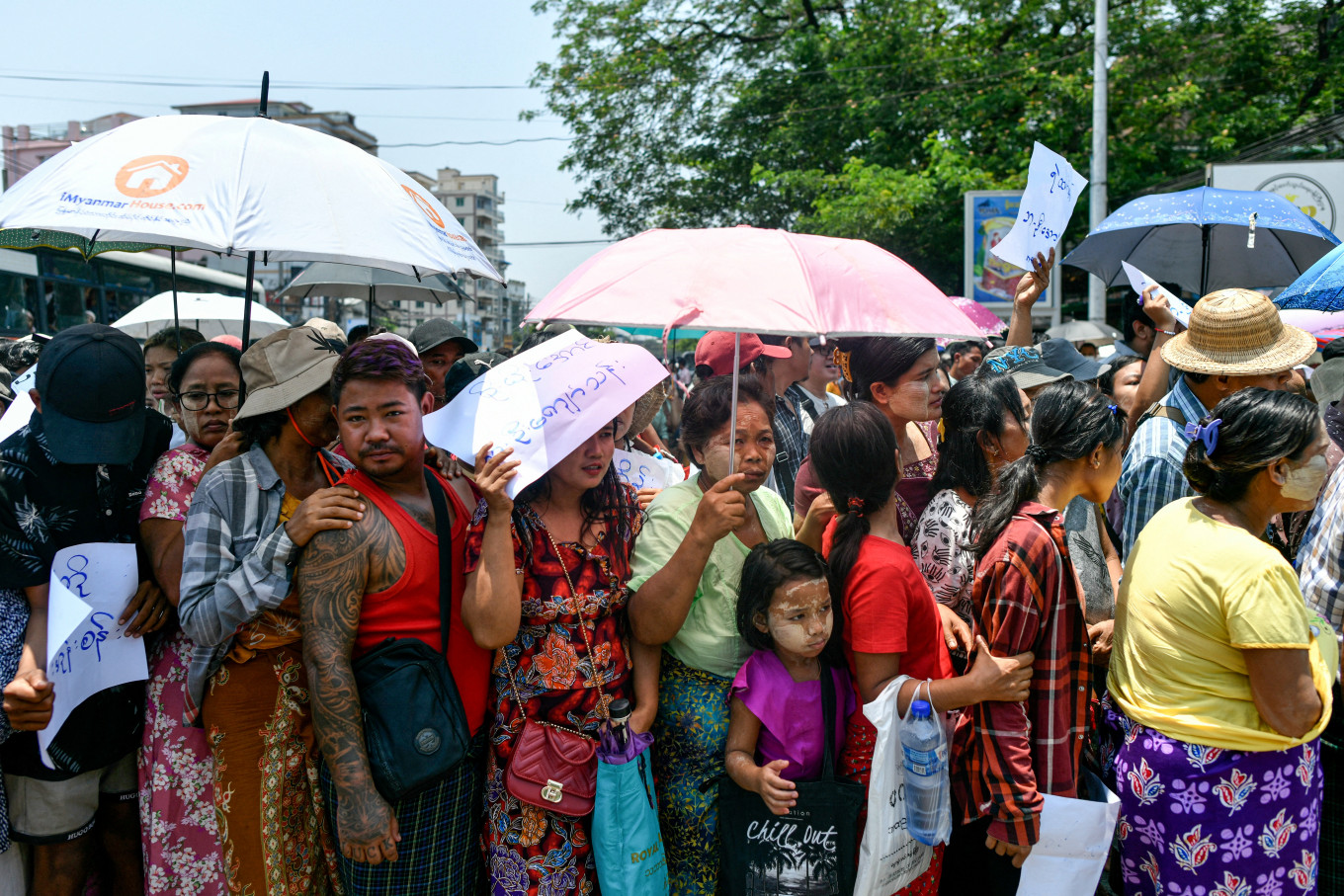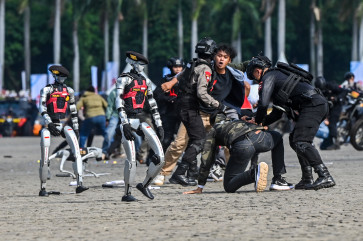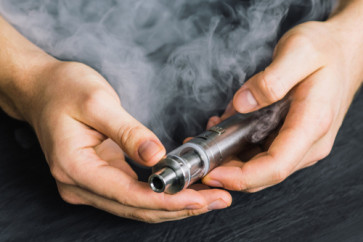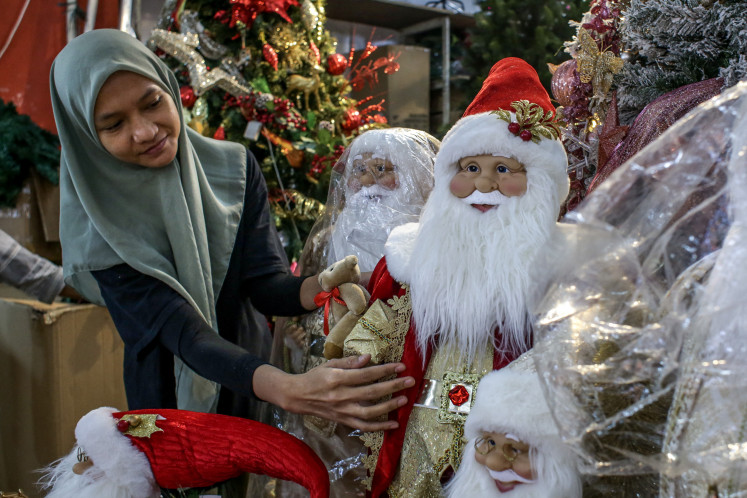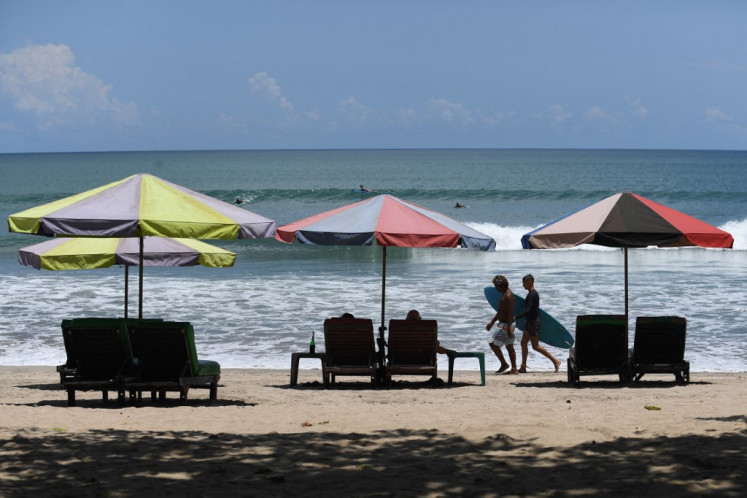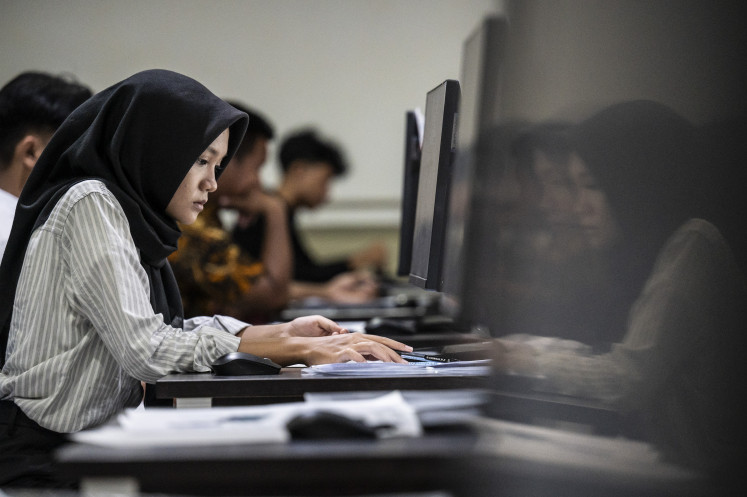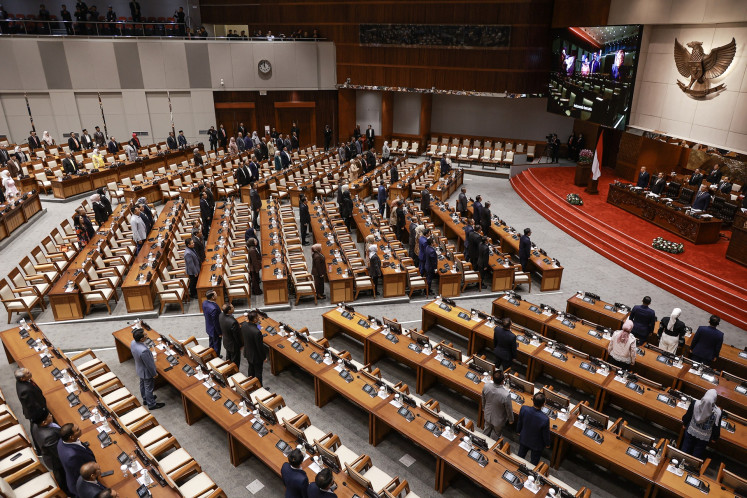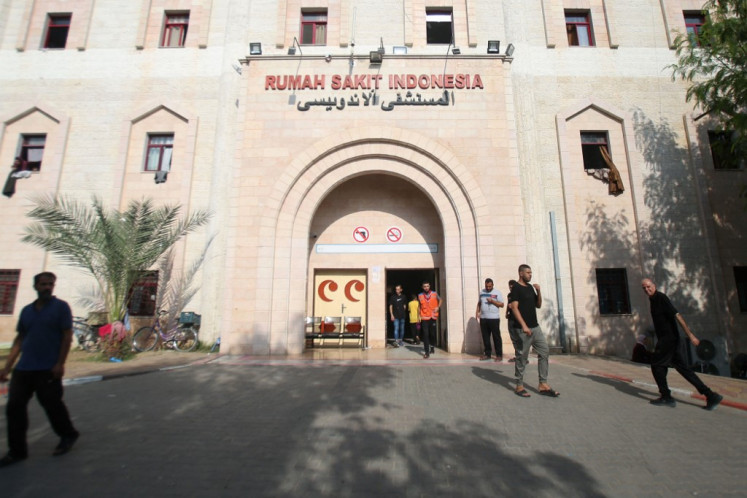Popular Reads
Top Results
Can't find what you're looking for?
View all search resultsPopular Reads
Top Results
Can't find what you're looking for?
View all search resultsASEAN’s silence on Myanmar’s political prisoners
The Myanmar junta continues to use imprisonment not as a tool of justice, but as an instrument of repression, while ASEAN remains silent.
Change text size
Gift Premium Articles
to Anyone
A
s the 58th ASEAN Foreign Ministers’ Meeting (AMM) convenes in Kuala Lumpur on July 8-9, one issue must rise above diplomatic courtesies and scripted communiqués: The immediate and unconditional release of Myanmar’s political prisoners.
It has been more than four years since ASEAN held its first emergency response to Myanmar’s coup, the ASEAN Leaders’ Meeting on April 24, 2021. In that meeting, several leaders explicitly called for the release of political prisoners but the demand never made it into the Five-Point Consensus. That omission has cast a long and damning shadow over ASEAN’s credibility as a custodian of peace and justice.
Some ASEAN leaders have shown moral clarity. In March 2021, then Indonesian foreign minister Retno Marsudi publicly urged the junta to halt violence and release State Counsellor Aung San Suu Kyi, President Win Myint and all political detainees. Retno led tireless shuttle diplomacy ahead of the leaders’ meeting, advocating for this demand to be reflected in ASEAN’s response. Singapore’s foreign minister similarly declared in Parliament on March 1, 2021 that a peaceful resolution could only begin with freeing political prisoners.
Brunei’s foreign minister went further at the 54th AMM, explicitly pushing for the release of women, children and foreign nationals held for political reasons. Malaysia’s foreign minister echoed this demand for the “prompt and unconditional release” of detained leaders. In August 2022, at the 55th AMM, Singapore again stressed the importance of access for the ASEAN special envoy to meet with all parties, including those in detention.
Yet these principled declarations have faded into inaction. No recent ASEAN chair has revived the call. No sustained pressure has followed. The ASEAN special envoy has never visited a single detention facility. What remains are thousands of voices silenced behind bars.
This is not just a failure of diplomacy. It is a failure of humanity.
Meanwhile, the Myanmar junta continues to use imprisonment not as a tool of justice, but as an instrument of repression. Based on data collected by the Assistance Association for Political Prisoners (AAPP), there are more than 29,000 people who have been detained for resisting military rule since the 2021 coup. The actual figure may be higher, according to the Institute for Strategy and Policy Myanmar, a Chiang Mai-based think tank.
These detainees are not criminals. They are elected lawmakers, students, journalists, medics, poets and everyday citizens. Their only “crime” is dreaming of a freer, democratic Myanmar.
The junta has attempted to mask its repression by staging at least 15 mass amnesties between 2021 and 2025, timed to coincide with national holidays or international summits. AAPP reports that fewer than 10 percent of those released were political prisoners. Arrests continue unabated—a revolving door of repression.
In May 2023, for example, the junta announced the release of 2,100 detainees charged under Section 505(a) of the Penal Code, mostly for “incitement.” This move, occurring just before ASEAN and United Nations meetings, was a transparent attempt to manipulate diplomatic optics. The Political Prisoners Network–Myanmar (PPNM) reported that only 150 political detainees were released in January 2025, far fewer than the 600 claimed by the junta.
Inside the prisons, the humanitarian crisis has deepened, especially following the April 2025 earthquake. Food rations have been slashed. Inmates at Myingyan Prison report such severe malnutrition that many cannot walk. Across the country, meat has been removed from prison diets, replaced with eggs or inadequate substitutes.
In some facilities, detainees receive no protein at all. Sanitation, already dire, has worsened to inhuman levels.
During the fact-finding mission organized by the ASEAN Parliamentarians for Human Rights (APHR) to Mae Sot in May 2025, I spoke with civil society groups and former detainees. They shared chilling testimonies.
One former political prisoner, Aung Tun Oo (a pseudonym), was arrested in March 2021 during a peaceful protest in Mandalay. He was beaten unconscious by plainclothes officers and sent to the notorious Obo prison.
There, he endured brutal torture, psychological torment and relentless humiliation. His voice faltered and his eyes welled with tears when I asked about the condition of female inmates. He paused, quietly saying he would answer it later.
Yet even in that darkness, resistance endured: revolutionary songs whispered through concrete walls, a smuggled boiled egg passed hand to hand, a scrap of paper bearing the words, “We are together.” These were not mere gestures of kindness, they were quiet, unbreakable acts of defiance.
Aung Tun Oo’s story is far from unique. Prisons designed for 700 inmates often hold over 1,200. Sanitation is non-existent. Infectious disease is rampant. Torture is routine.
During the COVID-19 pandemic, prisoners were denied basic care, given only ginger water or fermented fish paste as “medicine.” Since 2021, at least 130 political prisoners have died in custody, many from torture, untreated illness or execution.
The numbers are harrowing. In 2024 alone, 22 political detainees died of preventable conditions. PPNM documented 148 torture cases across different prisons that same year. Seventy-six political prisoners were sentenced to prolonged solitary confinement. Nearly 1,900 were transferred to remote facilities, severing access to family, legal aid, and humanitarian support.
ASEAN can no longer treat Myanmar’s political prisoners as a peripheral concern. At the 58th AMM, foreign ministers must raise a clear and unwavering demand: the immediate and unconditional release of all political prisoners. This demand must not be relegated to the sidelines or buried in vague diplomatic language. It must be front and center, uncompromising and non-negotiable.
As Aung Tun Oo put it: “There can be no justice without freedom. And there will be no freedom in Myanmar while its political prisoners remain behind bars.”
***
The writer is executive director of ASEAN Parliamentarians for Human Rights (APHR)

